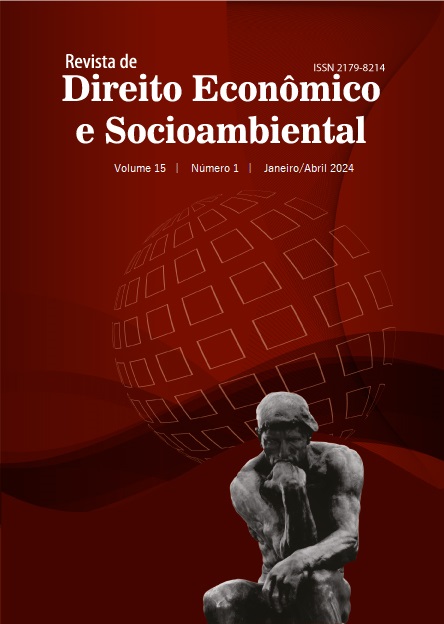Yanomami indigenous rights and the environment: for integrated protection in the Supreme Court and the Inter-American system
DOI:
https://doi.org/10.7213/revdireconsoc.v15i1.29940Keywords:
indigenous rights; yanomami; illegal mining; environment; intercultural dialogue.Abstract
Despite the achievements of indigenous rights, both within the scope of international treaties and the Federal Constitution of 1988, Brazil is experiencing a panorama of violations of these guarantees in the face of the advance of illegal mining in the Amazon Forest. Forced contact with prospectors, as well as the environmental degradation resulting from the activity, damage the health and way of life of indigenous peoples, including the Yanomami. Through ADPF nº 709 – DF, the Articulação dos Povos Indígenas do Brasil seeks to obtain from the Federal Supreme Court a guardianship capable of assuring protection to invaded communities. This article aims to identify perspectives to implement the rights of these peoples based on the recognition of their interconnection with nature, based on the systemic and integrated application of articles 225 and 231 of CF/88. To this end, it examines, in the light of the paradigm of interculturality, a decision in which the STF partially granted a Precautionary Measure within the scope of the aforementioned ADPF. As for the methodology, the research was carried out with a qualitative approach, through bibliographical and documental examination. Its relevance lies in offering a academic contribution in proposing legal solutions, at the national and inter-American levels, to safeguard the rights of the Yanomami threatened by illegal mining on their lands.
Downloads
Downloads
Published
How to Cite
Issue
Section
License
Copyright (c) 2024 Luciana Barreira de Vasconcelos, Gina Vidal Marcílio Pompeu

This work is licensed under a Creative Commons Attribution 4.0 International License.
Authors who publish in this Journal agree to the following terms:
- Authors retain copyright and grant the Journal of Economic and Socio-Environmental Law the right of first publication with the article simultaneously licensed under the Creative Commons - Attribution 4.0 International which allows sharing the work with recognition of the authors and its initial publication in this Journal.
- Authors are able to take on additional contracts separately, for non-exclusive distribution of the version of the paper published in this Journal (eg.: publishing in institutional repository or as a book), with a recognition of its initial publication in this Journal.
- Authors are allowed and encouraged to publish their work online (eg.: in institutional repositories or on their personal website) at any point before or during the submission process, as it can lead to productive exchanges, as well as increase the impact and the citation of the published work (see the Effect of Open Access).





















